#Electronic Patient Record Software
Explore tagged Tumblr posts
Text

HealthSync: Efficient Electronic Medical Records
Versatility, efficiency, usability and security are the most important factors to consider here. You will be able to take full advantage of the capabilities electronic medical records software give you whilst making sure it’s secure and compliant with regulations in the UK and elsewhere. And of course, it also needs to be easy to use so patients and staff can access the information they need as effectively as possible.
#Emr Software#Emr Softwares#Ehr Software#Electronic Patient Record Software#Electronic Medical Records Software
0 notes
Text
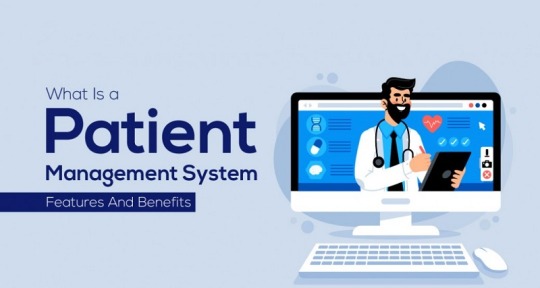
Patient Management System (PMS) For Care Homes
Our client required a custom Patient Management System (PMS) for their care organisations whilst also including several subsystems. The PMS aimed to help control and analyse medication intake as well as collecting data on treatment dynamics for each patient. The accumulated information would then support the selection and recommendation of a suitable treatment for each patient, facilitating care providers’ decision-making.
Visit our page: https://rbbrduck.co.uk/patient-management-software/
#patient management system#patient management systems#patient management software#electronic patient record software uk#electronic patient record software
0 notes
Text
The Digitization of Patient Records through EHR Software Is Perhaps the Most Intelligent Move You Could Plan for Your Clinic
Paper records were always part and parcel of the medical practice. But as clinics grow and patient demands also rise, managing files manually disappointingly becomes a daily challenge. Is your office currently working on paper? Then you are looking at data getting lost, delays, or errors. The great thing? A better way does exist.
EHR software handles record-keeping much more easily, gives better access to those records, and improves patient care. Let us look at how digitizing patient records using Clinthora's EHR software—an integral part of any modern clinic management software—can change your clinic setup, especially for healthcare providers in India and Dubai.
Problems with Paper Records
Paper files may appear simple, but they mostly create problems:
Lost or misfiled
Unclear handwriting
Requires physical storage space
Slow in data retrieval
No remote access
These issues culminate in slowing your staff down, and then there are patient care incidents being compromised. It is not just a slog; it is life-threatening.
What Is EHR Software?
An electronic health record is a computerized platform for storing, managing, and securely updating patient records. It manages in one place patient history, prescriptions, lab reports, diagnoses, and even doctor notes.
With the Clinthora EHR system, every piece of information is arranged and easily accessible either inside the clinic or at a remote location.
As a core part of any healthcare management software, EHRs keep clinics organized and compliant.
Benefits of Digitizing Patient Records
1. Instant Access to Information
You no longer have to search through folders or wait for someone to bring a file. Patient records are accessible with a few clicks.
2. Secure and Compliant
Clinthora’s EHR software meets healthcare regulations in India and Dubai. Data is encrypted, stored safely in the cloud, and only accessible to authorized users.
3. Better Patient Care
With updated and accurate information, doctors can make faster, more informed decisions. EHRs also reduce medication errors and missed allergies.
4. Seamless Collaboration
If your clinic has multiple doctors, EHR allows them to collaborate better. One doctor can view previous visits, notes, and lab results without needing to ask others.
5. Remote Access
Consulting from home or another clinic? No problem. EHR software lets you access patient records securely from anywhere.
6. No Paper Clutter
Forget filing cabinets. Everything is stored digitally, which means your clinic looks cleaner and runs more efficiently.
Why Clinics in India and Dubai Are Adopting EHR Software
Healthcare in India and Dubai is evolving fast. Patients expect a higher standard of service. Regulations are getting stricter. Doctors are busier than ever.
EHR software is no longer a luxury — it’s a necessity.
In India, medical compliance rules now require better record-keeping and patient data security.
In Dubai, DHA mandates proper documentation and digital health records for audits and compliance.
Clinthora helps clinics stay compliant while improving operations with its all-in-one clinic management software.
Clinthora’s EHR Software: Built for Clinics Like Yours
Clinthora offers a powerful, easy-to-use EHR system made specifically for doctors and clinics:
Simple interface that staff can learn quickly
Customizable templates for different specialties
Automatic data sync between appointments, prescriptions, and billing
Built-in lab and prescription management
Patient history timeline so you can view full treatment journeys at a glance
It’s part of a complete medical practice management software that ensures every clinic process — from scheduling to reporting — is connected and efficient.
Improved Efficiency at the Front Desk
When records are digital, front-desk staff don’t waste time pulling files or confirming handwritten notes. Instead, they can:
Check patient history before appointments
Update records in real time
Speed up check-in and check-out
Reduce waiting time for patients
Front-desk staff can manage more patients with less stress, using the same online clinic software system for bookings, reminders, and billing.
Better Communication with Patients
With accurate records at hand, clinics can:
Send appointment reminders
Share prescriptions digitally
Notify patients of follow-ups
Educate them with digital reports and instructions
EHR software supports better relationships between your clinic and your patients. And with Clinthora’s integrated tools, you get features like patient engagement software, SMS notifications, and teleconsultation support — all synced in one place.
Multi-Clinic and Multi-Doctor Ready
If you manage multiple locations or have a team of doctors, Clinthora’s EHR software makes coordination simple. You can:
Access all clinic data from one dashboard
Assign patient records to specific doctors
Review inter-branch performance
Whether your clinic is in Delhi, Dubai, or expanding across both, the system grows with you.
Clinthora’s platform is scalable, making it perfect for multi-location clinic management.
Stay Ahead with Real-Time Insights
Clinthora doesn’t just store records — it helps you learn from them. Built-in analytics let you:
Track most common diagnoses
Identify gaps in follow-up care
Review doctor and department performance
Analyze treatment outcomes
This kind of data turns your clinic into a learning, growing business. With our healthcare analytics software, you get insights that lead to action.
Data Security You Can Trust
Patient trust is built on confidentiality. Clinthora uses
Role-based access controls
Data encryption
Automatic backups
Audit trails for all activities
This ensures that your electronic health records system is secure and that your clinic stays compliant with Indian and UAE medical data laws.
Integrated Billing and Reporting
EHR software isn't just about patient records — it connects directly with your billing system too. With Clinthora:
Generate bills based on treatment notes
Process insurance claims easily
Track revenue in real time
Export financial reports instantly
All of this is part of our full-featured online billing software, designed to save time and reduce errors.
Conclusion: Clinic Management Software that Works for You
Digitizing your clinic’s records with a reliable EHR software is one of the smartest moves you can make. It reduces human error, improves access, and creates a better experience for both doctors and patients.
Clinthora brings everything under one platform — EHR, billing, scheduling, and more — with a clean interface that’s easy to use.
Whether you're a solo practitioner or running a chain of clinics, our complete clinic management software keeps your operations smooth, compliant, and ready to grow.
Clinthora helps you provide care with confidence.
✔️ Smart Records ✔️ Fast Workflows ✔️ Strong Compliance
It’s time to leave paperwork behind and step into the future of care.
#clinic management software#clinthora#billing software#ehr software#clinthora clinic software#electronic health records system#patient engagement software
0 notes
Text
#Clinic Management Software in Sunyani#clinic operations#Digital Healthcare Solutions in Sunyani#Electronic Health Records in Sunyani#Electronic Medical Records Software#emr software#Health Management Solutions in Sunyani#Healthcare management system#Healthcare Software in Sunyani#Healthcare Systems in Sunyani#Hospital Management Software in Sunyani#Medical Billing Software in Sunyani#Medical Practice Software in Sunyani#Medical Records Management in Sunyani#Medical Software in Sunyani#Patient Care Software in Sunyani#Patient Management System in Sunyani#Pet appointment software#Pet clinic booking software#Remote patient monitoring software#Telemedicine Software#Telemedicine Software in Sunyani#vet clinic software#Vet Software
1 note
·
View note
Text

Switching from paper documents to Electronic Health Record (EHR) software offers numerous advantages for patient care. EHR systems streamline information access, improve communication, reduce errors, and ensure better compliance with healthcare regulations. Discover how adopting EHR software can lead to enhanced patient safety, faster treatment, and a more efficient healthcare experience overall.
#Benefits of EHR software#EHR vs paper records#Electronic Health Records for patients#Patient care with EHR systems#Improving patient safety with EHR#Paperless patient record systems
0 notes
Text
Discover how 1st Providers Choice EMR Software can revolutionize your rheumatology practice by offering a comprehensive, user-friendly solution designed specifically for rheumatologists. This EMR system integrates patient management, medical history tracking, treatment plans, and billing, all in one platform. With features tailored for rheumatology, including specialized templates and easy access to patient data, 1st Providers Choice EMR ensures improved patient care, better clinical decision-making, and increased operational efficiency. Learn more about how this software can enhance your practice today.
#Rheumatology EMR software#EMR for rheumatology practices#Rheumatology electronic medical records#Rheumatology practice management software#Rheumatology patient management#Rheumatology billing and scheduling software#Best EMR for rheumatologists
0 notes
Text
Revolutionizing Healthcare in Washington with DrCloudEHR
Introduction
In today's rapidly evolving healthcare landscape, the integration of advanced technology is more critical than ever. One standout platform revolutionizing this space is DrCloudEHR. This article delves into how DrCloudEHR is transforming healthcare in Washington through its comprehensive suite of tools and services.
Digital Signature for Mental Health in Washington
The document security and validity can vary only by the digital signatures. DrCloudEHR document solution encompasses strong digital signatures functionality, which is a dire need in the mental cases for privacy and accuracy implementation. With this strong feature, secured features will be improved, and an increase in the approval procedures, hence providing healthcare professionals with means for the optimization of the management of patient records fast and easily.
Patient Document Management System
Proper management of patient documents is the backbone of healthcare delivery. The patient document management system in Washington allows easy and organized management of large reams of data on patients. Computerizing records and access to crucial information, this system minimizes administrative burden and improves quality care.
Patient Appointment System in Washington
The scheduling of appointments in most cases proves burdensome to the patient and the provider. With the user friendly interface, this patient appointment system of DrCloudEHR makes it much easier. It facilitates making appointments easier for patients and efficiently managing the schedule of providers for better patient outcomes and satisfaction.
EMR Electronic Medical Record in Washington
EMRs are a digital version of every patient's paper chart. comprehensive EMR Electronic Medical Record in Washington improves the accuracy and accessibility to information on patients. With this system, real time information will be available at the provider's fingertips for better decisions pertaining to the care of patients.
Healthcare Document Handling System in Washington
Effective document handling is the prime requirement for any healthcare service provider. That is the basis upon which DrCloudEHR's healthcare document handling system provides a sound solution to accelerate management workflow associated with healthcare documents. This makes sure that all the records of a patient are managed, accessible, and secure at the same time, enhancing operational efficiency.
Healthcare Electronic Records in Washington
One major step in modernization would be transitioning to electronic records. DrCloudEHR enables this through an efficient electronic record system that aids in rendering data more accessible and accurate for healthcare providers to deliver efficient and effective care to their patients.
Clinical Records Document Management Program in Washington
It becomes difficult to manage clinical records accurately and systematically. DrCloudEHR's Clinical records document management program provides a one-stop solution to manage clinical documents. It helps health providers keep proper documentation of patients' history for better care.
Mental Health Disaster Recovery Management in Washington
Recovery management in the case of disasters, especially in mental health, requires a system that is reliable. DrCloudEHR's mental health disaster recovery management allows for the backup of all data related to their patients and the ability to restore them quickly, hence avoiding disruptions that have a bearing on the continuity of care in times of crisis.
Billing Module in Hospital Management System in Washington
Billing can get pretty intricate and time-consuming. The billing module by DrCloudEHR is designed to make this task less cumbersome by automating various features of the entire procedure of billing. This module helps healthcare providers in running their finances more effectively by ensuring proper timing and accuracy while making a bill.
CCBHC EHR Software in Washington
Such operations would need specialized software to be run effectively. At DrCloudEHR, CCBHCs can find tailored EHR software to meet their unique requirements. This software increases efficiency and effectiveness in behavioral health services and makes sure that patients could have better outcomes.
Electronic Health Records in Washington
EHRs are the backbones of healthcare today. DrCloudEHR delivers an end-to-end EHR system designed to enhance accuracy and accessibility for patient data. This will help medical professionals in the delivery of optimum care, since all their information is at their fingertips.
Telehealth Solutions in Washington
Telehealth has grown to be part of intrinsic healthcare delivery, especially in the wake of the COVID-19 pandemic. DrCloudEHR offers strong telehealth solutions that make it very easy for care providers to conduct consultation remotely with patients. These solutions ensure that patients can receive care irrespective of their location.
Clinical Decision Support System in Washington
Informed clinical decisions accompany the delivery of quality care. The clinical decision support system that comes with DrCloudEHR is designed to give health care providers superior decision-making abilities. That leverages state-of-the-art algorithms and data analysis for guidance that raises the bar on patient care.
Electronic Prescribing for Controlled Substances in Washington
EPCS is one of the most critical aspects of healthcare. DrCloudEHR, with its EPCS features, gives an accurate and secure prescription. This reduces errors in the process and increases the efficiency of prescribing medications.
Conclusion
DrCloudEHR is the leading technology platform of healthcare in Washington, aimed at providing a complete package of tools and services for making the delivery of healthcare more quick and efficient. It means that digital signatures, document management, and telehealth are all within the purview of DrCloudEHR, meeting the many needs of healthcare providers. Indeed, it will be platforms such as taking a front seat in defining the future of healthcare with the further evolution of technology.
For more information contact.www.drcloudehr.com
#digital signature for mental health in washington#patient document management system in washington#patient appointment system in washingtonemr electronic medical record in washington#healthcare document handling system in washingtonclinical records document management program in washington#mental health disaster recovery management in washington#healthcare electronic records in washington#billing module in hospital management system in washington#ccbhc ehr software in washington#electronic health records in washington#clinical decision support system in washington#electronic prescribing for controlled substances in washington#clinical support system in washington
0 notes
Text
PrideHealth - Comprehensive Healthcare Management Solution
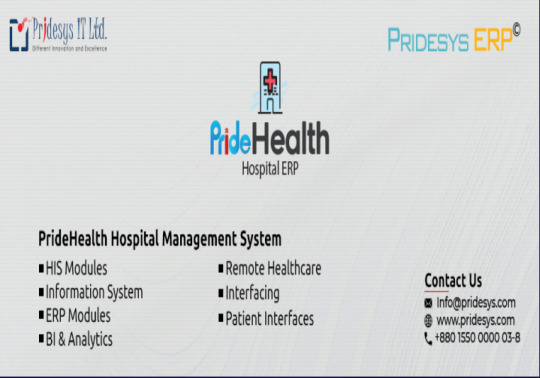
PrideHealth, a product of Pridesys, revolutionizes operational efficiency and cost reduction in hospitals and healthcare organizations. By streamlining internal information flow and communication, PrideHealth ensures accurate patient care delivery. Renowned for its scalability, security, and customizable features, PrideHealth offers comprehensive solutions for various hospital activities including inpatient and outpatient management, billing, testing, bed management, and HR management. It simplifies reporting by providing daily, weekly, monthly, and yearly insights tailored to specific requirements. With hundreds of automation features, PrideHealth offers unlimited user accounts, trouble-free appointment booking, medication tracking, dynamic dashboards, and comprehensive records management for patients, staff, diagnostics, and more. Its user-friendly interface supports efficient doctor and patient management, prescription and diagnostic report generation, billing, pharmacy management, and inventory control. PrideHealth improves efficiency, reduces errors, enhances patient care, and ensures data security, making it an indispensable tool for modern healthcare administration.
For more Information visit: https://pridesys.com/product/pridehealth/
Contact us:
E-mail: [email protected];
Phone: +8801550000003-8, 01550000035
#Healthcare management solution#Patient records management#Appointment scheduling software#Medical billing system#Integrated reporting tool#Healthcare administration software#Electronic health records (EHR) system#Patient care optimization#Medical practice efficiency#Healthcare software solution
0 notes
Text
Epic Systems, a lethal health record monopolist

Epic Systems makes the dominant electronic health record (EHR) system in America; if you're a doctor, chances are you are required to use it, and for every hour a doctor spends with a patient, they have to spend two hours doing clinically useless bureaucratic data-entry on an Epic EHR.
How could a product so manifestly unfit for purpose be the absolute market leader? Simple: as Robert Kuttner describes in an excellent feature in The American Prospect, Epic may be a clinical disaster, but it's a profit-generating miracle:
https://prospect.org/health/2024-10-01-epic-dystopia/
At the core of Epic's value proposition is "upcoding," a form of billing fraud that is beloved of hospital administrators, including the "nonprofit" hospitals that generate vast fortunes that are somehow not characterized as profits. Here's a particularly egregious form of upcoding: back in 2020, the Poudre Valley Hospital in Ft Collins, CO locked all its doors except the ER entrance. Every patient entering the hospital, including those receiving absolutely routine care, was therefore processed as an "emergency."
In April 2020, Caitlin Wells Salerno – a pregnant biologist – drove to Poudre Valley with normal labor pains. She walked herself up to obstetrics, declining the offer of a wheelchair, stopping only to snap a cheeky selfie. Nevertheless, the hospital recorded her normal, uncomplicated birth as a Level 5 emergency – comparable to a major heart-attack – and whacked her with a $2755 bill for emergency care:
https://pluralistic.net/2021/10/27/crossing-a-line/#zero-fucks-given
Upcoding has its origins in the Reagan revolution, when the market-worshipping cultists he'd put in charge of health care created the "Prospective Payment System," which paid a lump sum for care. The idea was to incentivize hospitals to provide efficient care, since they could keep the difference between whatever they spent getting you better and the set PPS amount that Medicare would reimburse them. Hospitals responded by inventing upcoding: a patient with controlled, long-term coronary disease who showed up with a broken leg would get coded for the coronary condition and the cast, and the hospital would pocket both lump sums:
https://pluralistic.net/2024/06/13/a-punch-in-the-guts/#hayek-pilled
The reason hospital administrators love Epic, and pay gigantic sums for systemwide software licenses, is directly connected to the two hours that doctors spent filling in Epic forms for every hour they spend treating patients. Epic collects all that extra information in order to identify potential sources of plausible upcodes, which allows hospitals to bill patients, insurers, and Medicare through the nose for routine care. Epic can automatically recode "diabetes with no complications" from a Hierarchical Condition Category code 19 (worth $894.40) as "diabetes with kidney failure," code 18 and 136, which gooses the reimbursement to $1273.60.
Epic snitches on doctors to their bosses, giving them a dashboard to track doctors' compliance with upcoding suggestions. One of Kuttner's doctor sources says her supervisor contacts her with questions like, "That appointment was a 2. Don’t you think it might be a 3?"
Robert Kuttner is the perfect journalist to unravel the Epic scam. As a journalist who wrote for The New England Journal of Medicine, he's got an insider's knowledge of the health industry, and plenty of sources among health professionals. As he tells it, Epic is a cultlike, insular company that employs 12.500 people in its hometown of Verona, WI.
The EHR industry's origins start with a GW Bush-era law called the HITECH Act, which was later folded into Obama's Recovery Act in 2009. Obama provided $27b to hospitals that installed EHR systems. These systems had to more than track patient outcomes – they also provided the data for pay-for-performance incentives. EHRs were already trying to do something very complicated – track health outcomes – but now they were also meant to underpin a cockamamie "incentives" program that was supposed to provide a carrot to the health industry so it would stop killing people and ripping off Medicare. EHRs devolved into obscenely complex spaghetti systems that doctors and nurses loathed on sight.
But there was one group that loved EHRs: hospital administrators and the private companies offering Medicare Advantage plans (which also benefited from upcoding patients in order to soak Uncle Sucker):
https://www.ncbi.nlm.nih.gov/pmc/articles/PMC8649706/
The spread of EHRs neatly tracks with a spike in upcharging: "from 2014 through 2019, the number of hospital stays billed at the highest severity level increased almost 20 percent…the number of stays billed at each of the other severity levels decreased":
https://oig.hhs.gov/oei/reports/OEI-02-18-00380.pdf
The purpose of a system is what it does. Epic's industry-dominating EHR is great at price-gouging, but it sucks as a clinical tool – it takes 18 keystrokes just to enter a prescription:
https://jamanetwork.com/journals/jamanetworkopen/fullarticle/2729481
Doctors need to see patients, but their bosses demand that they satisfy Epic's endless red tape. Doctors now routinely stay late after work and show up hours early, just to do paperwork. It's not enough. According to another one of Kuttner's sources, doctors routinely copy-and-paste earlier entries into the current one, a practice that generates rampant errors. Some just make up random numbers to fulfill Epic's nonsensical requirements: the same source told Kuttner that when prompted to enter a pain score for his TB patients, he just enters "zero."
Don't worry, Epic has a solution: AI. They've rolled out an "ambient listening" tool that attempts to transcribe everything the doctor and patient say during an exam and then bash it into a visit report. Not only is this prone to the customary mistakes that make AI unsuited to high-stakes, error-sensitive applications, it also represents a profound misunderstanding of the purpose of clinical notes.
The very exercise of organizing your thoughts and reflections about an event – such as a medical exam – into a coherent report makes you apply rigor and perspective to events that otherwise arrive as a series of fleeting impressions and reactions. That's why blogging is such an effective practice:
https://pluralistic.net/2021/05/09/the-memex-method/
The answer to doctors not having time to reflect and organize good notes is to give them more time – not more AI. As another doctor told Kuttner: "Ambient listening is a solution to a self-created problem of requiring too much data entry by clinicians."
EHRs are one of those especially hellish public-private partnerships. Health care doctrine from Reagan to Obama insisted that the system just needed to be exposed to market forces and incentives. EHRs are designed to allow hospitals to win as many of these incentives as possible. Epic's clinical care modules do this by bombarding doctors with low-quality diagnostic suggestions with "little to do with a patient’s actual condition and risks," leading to "alert fatigue," so doctors miss the important alerts in the storm of nonsense elbow-jostling:
https://www.ncbi.nlm.nih.gov/pmc/articles/PMC5058605/
Clinicians who actually want to improve the quality of care in their facilities end up recording data manually and keying it into spreadsheets, because they can't get Epic to give them the data they need. Meanwhile, an army of high-priced consultants stand ready to give clinicians advise on getting Epic to do what they need, but can't seem to deliver.
Ironically, one of the benefits that Epic touts is its interoperability: hospitals that buy Epic systems can interconnect those with other Epic systems, and there's a large ecosystem of aftermarket add-ons that work with Epic. But Epic is a product, not a protocol, so its much-touted interop exists entirely on its terms, and at its sufferance. If Epic chooses, a doctor using its products can send files to a doctor using a rival product. But Epic can also veto that activity – and its veto extends to deciding whether a hospital can export their patient records to a competing service and get off Epic altogether.
One major selling point for Epic is its capacity to export "anonymized" data for medical research. Very large patient data-sets like Epic's are reasonably believed to contain many potential medical insights, so medical researchers are very excited at the prospect of interrogating that data.
But Epic's approach – anonymizing files containing the most sensitive information imaginable, about millions of people, and then releasing them to third parties – is a nightmare. "De-identified" data-sets are notoriously vulnerable to "re-identification" and the threat of re-identification only increases every time there's another release or breach, which can used to reveal the identities of people in anonymized records. For example, if you have a database of all the prescribing at a given hospital – a numeric identifier representing the patient, and the time and date when they saw a doctor and got a scrip. At any time in the future, a big location-data breach – say, from Uber or a transit system – can show you which people went back and forth to the hospital at the times that line up with those doctor's appointments, unmasking the person who got abortion meds, cancer meds, psychiatric meds or other sensitive prescriptions.
The fact that anonymized data can – will! – be re-identified doesn't mean we have to give up on the prospect of gleaning insight from medical records. In the UK, the eminent doctor Ben Goldacre and colleagues built an incredible effective, privacy-preserving "trusted research environment" (TRE) to operate on millions of NHS records across a decentralized system of hospitals and trusts without ever moving the data off their own servers:
https://pluralistic.net/2024/03/08/the-fire-of-orodruin/#are-we-the-baddies
The TRE is an open source, transparent server that accepts complex research questions in the form of database queries. These queries are posted to a public server for peer-review and revision, and when they're ready, the TRE sends them to each of the databases where the records are held. Those databases transmit responses to the TRE, which then publishes them. This has been unimaginably successful: the prototype of the TRE launched during the lockdown generated sixty papers in Nature in a matter of months.
Monopolies are inefficient, and Epic's outmoded and dangerous approach to research, along with the roadblocks it puts in the way of clinical excellence, epitomizes the problems with monopoly. America's health care industry is a dumpster fire from top to bottom – from Medicare Advantage to hospital cartels – and allowing Epic to dominate the EHR market has somehow, incredibly, made that system even worse.
Naturally, Kuttner finishes out his article with some antitrust analysis, sketching out how the Sherman Act could be brought to bear on Epic. Something has to be done. Epic's software is one of the many reasons that MDs are leaving the medical profession in droves.
Epic epitomizes the long-standing class war between doctors who want to take care of their patients and hospital executives who want to make a buck off of those patients.

Tor Books as just published two new, free LITTLE BROTHER stories: VIGILANT, about creepy surveillance in distance education; and SPILL, about oil pipelines and indigenous landback.
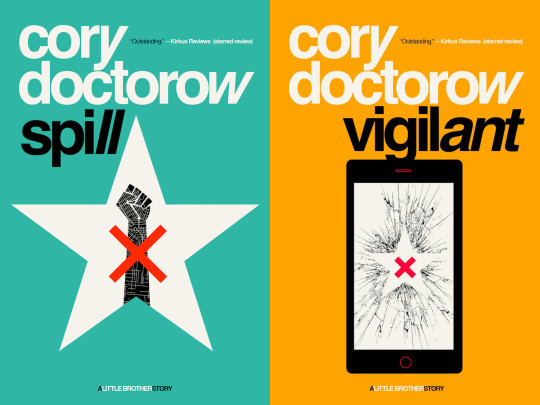

If you'd like an essay-formatted version of this post to read or share, here's a link to it on pluralistic.net, my surveillance-free, ad-free, tracker-free blog:
https://pluralistic.net/2024/10/02/upcoded-to-death/#thanks-obama

Image: Flying Logos (modified) https://commons.wikimedia.org/wiki/File:Over_$1,000,000_dollars_in_USD_$100_bill_stacks.png
CC BY-SA 4.0 https://creativecommons.org/licenses/by-sa/4.0/deed.en
#pluralistic#ehrs#robert kuttner#tres#trusted research environments#ben goldacre#epic#epic systems#interoperability#privacy#reidentification#deidentification#thanks obama#upcoding#Hierarchical Condition Category#medicare#medicaid#ai#American Recovery and Reinvestment Act#HITECH act#medicare advantage#ambient listening#alert fatigue#monopoly#antitrust
820 notes
·
View notes
Text

⋆˙⟡ The Nature of ICT in the Context of My Life, Society, and Chosen Professional Track ⋆˙⟡
ICT has played a major role in my everyday life. It has helped me in life, society, and my chosen professional track. ICT has significantly impacted my life, enhancing my skills as a student-photographer. It has helped me master digital cameras and editing software, allowing me to explore innovative photography techniques. By enhancing clinical results and patient care, ICT is also equally essential in other medical specialties. For example, keeping electronic health records to improve communication between patients and healthcare professionals by enabling the efficient storage, sharing, and management of patient data. Overall, ICT has transformed how we live today. It has created numerous technologies and developments that benefit across different fields and aspects of life.
2 notes
·
View notes
Photo
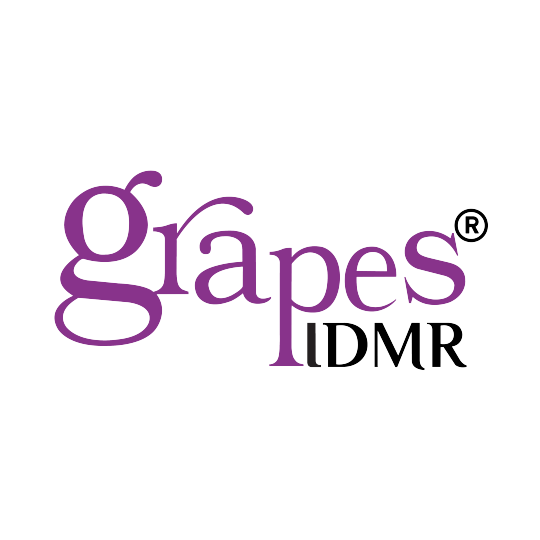
the Best Electronic Health Record Software in India | grapes idmr (on Wattpad) https://www.wattpad.com/story/385498617-the-best-electronic-health-record-software-in?utm_source=web&utm_medium=tumblr&utm_content=share_myworks&wp_uname=jeraldnepoleon The healthcare industry is undergoing a significant transformation, with technology playing a pivotal role in improving patient care, increasing efficiency, and reducing operational costs. One of the most important innovations in this revolution is the Best Electronic Health Record software, which has become a cornerstone for modern healthcare management. Among the various solutions available, Grapes IDMR, developed by Grapes Innovative Solutions, stands out as one of the most comprehensive and efficient Electronic Health Record (EHR) software in India...
#emrsoftware#grapesidmr#healthcare#hmssoftware#hospitalmanagementsoftware#jeraldnepoleon#software#books#wattpad#amwriting
2 notes
·
View notes
Text
Revolutionizing Healthcare: The Role of Cloud Computing in Modern Healthcare Technologies
In today’s digital era, cloud computing is transforming industries, and healthcare is no exception. The integration of cloud computing healthcare technologies is reshaping patient care, medical research, and healthcare management. Let’s explore how cloud computing is revolutionizing healthcare and the benefits it brings.
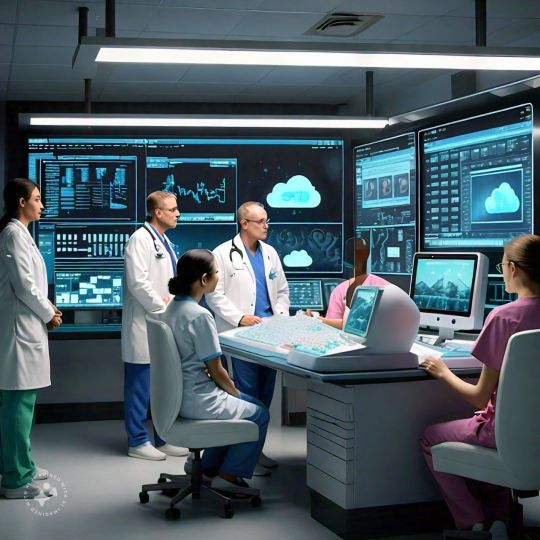
What is Cloud Computing in Healthcare?
Cloud computing in healthcare refers to the use of remote servers to store, manage, and process healthcare data, rather than relying on local servers or personal computers. This technology allows healthcare organizations to access vast amounts of data, collaborate with other institutions, and scale operations seamlessly.
Download PDF Brochure
Key Benefits of Cloud Computing in Healthcare
Enhanced Data Storage and Accessibility Cloud technology allows healthcare providers to store massive volumes of patient data, including medical records, images, and test results, securely. Clinicians can access this data from anywhere, ensuring that patient information is available for timely decision-making.
Improved Collaboration Cloud-based healthcare platforms enable easy sharing of patient data between healthcare providers, specialists, and labs. This facilitates better collaboration and more accurate diagnoses and treatment plans, especially in multi-disciplinary cases.
Cost Efficiency The cloud reduces the need for expensive hardware, software, and in-house IT teams. Healthcare providers only pay for the resources they use, making it a cost-effective solution. Additionally, the scalability of cloud systems ensures they can grow as healthcare organizations expand.
Better Data Security Protecting sensitive patient information is critical in healthcare. Cloud computing providers invest heavily in data security measures such as encryption, multi-factor authentication, and regular audits, ensuring compliance with regulatory standards like HIPAA.
Telemedicine and Remote Patient Monitoring Cloud computing powers telemedicine platforms, allowing patients to consult with doctors virtually, from the comfort of their homes. It also enables remote patient monitoring, where doctors can track patients' health metrics in real time, improving outcomes for chronic conditions.
Advanced Data Analytics The cloud supports the integration of advanced data analytics tools, including artificial intelligence (AI) and machine learning (ML), which can analyze large datasets to predict health trends, track disease outbreaks, and personalize treatment plans based on individual patient data.
Use Cases of Cloud Computing in Healthcare
Electronic Health Records (EHRs): Cloud-based EHRs allow healthcare providers to access and update patient records instantly, improving the quality of care.
Genomics and Precision Medicine: Cloud computing accelerates the processing of large datasets in genomics, supporting research and development in personalized medicine.
Hospital Information Systems (HIS): Cloud-powered HIS streamline hospital operations, from patient admissions to billing, improving efficiency.
Challenges in Cloud Computing for Healthcare
Despite its numerous benefits, there are challenges to implementing cloud computing in healthcare. These include:
Data Privacy Concerns: Although cloud providers offer robust security measures, healthcare organizations must ensure their systems are compliant with local and international regulations.
Integration with Legacy Systems: Many healthcare institutions still rely on outdated technology, making it challenging to integrate cloud solutions smoothly.
Staff Training: Healthcare professionals need adequate training to use cloud-based systems effectively.
Request Sample Pages
The Future of Cloud Computing in Healthcare
The future of healthcare will be increasingly cloud-centric. With advancements in AI, IoT, and big data analytics, cloud computing will continue to drive innovations in personalized medicine, population health management, and patient care. Additionally, with the growing trend of wearable devices and health apps, cloud computing will play a crucial role in integrating and managing data from diverse sources to provide a comprehensive view of patient health.
Conclusion
Cloud computing is not just a trend in healthcare; it is a transformative force driving the industry towards more efficient, secure, and patient-centric care. As healthcare organizations continue to adopt cloud technologies, we can expect to see improved patient outcomes, lower costs, and innovations that were once thought impossible.
Embracing cloud computing in healthcare is essential for any organization aiming to stay at the forefront of medical advancements and patient care.
Content Source:
2 notes
·
View notes
Text

What is EMR / EHR software?
Electronic medical records software and electronic health records software are both intelligent systems specifically designed to handle patient medical data. You will be able to take full advantage of the capabilities electronic medical records software give you whilst making sure it’s secure and compliant with regulations in the UK and elsewhere.
Visit our page: https://rbbrduck.co.uk/electronic-medical-records-software-emr-ehr/
#Electronic Medical Records Software#Electronic Medical Record Software#Patient Record Management Software
0 notes
Text
Importance of Dental software
Feeling overwhelmed managing appointments, patient records, billing, and insurance on top of providing excellent patient care? Dental practice management software (DPMS) can be your secret weapon!
Think of DPMS as your digital assistant, streamlining these tasks and freeing up valuable time for what matters most: focusing on your patients' smiles.
Here's how DPMS can revolutionize your dental practice:
Boost Efficiency: DPMS automates tasks like scheduling, billing, and recordkeeping, allowing you and your staff to dedicate more time to patient interaction.
Ditch the Paperwork: Say goodbye to overflowing file cabinets! Electronic records save space and make patient information readily accessible.
Enhanced Patient Communication: Improve communication with features like automated appointment reminders and online patient portals.
Smoother Financial Management: Streamline billing with automated processes and insurance verification, leading to faster and easier collections.
Inventory Management Made Easy: DPMS helps you track dental supplies and equipment, reducing waste and ensuring you have what you need when you need it.
Data-Driven Decisions: Generate insightful reports on patient demographics, treatment trends, and practice performance, empowering you to make informed decisions for your practice.
Choosing the Right DPMS: Cloud-Based vs. On-Premise
There are two main types of DPMS: cloud-based and on-premise. Understanding the differences is crucial for selecting the best fit for your practice.
Cloud-Based Dental Practice Management Software:
Imagine accessing software through the internet. Your data is securely stored on the vendor's servers and is accessible from any device with an internet connection.
Benefits:
Easy Setup and Maintenance: No software installation or server management needed. Updates are automatic.
Scalability: Grows with your practice – easily add users or features as needed.
Accessibility: Access patient information and manage your practice from anywhere, anytime.
Ideal for: Smaller practices, solo practitioners, or those who value flexibility and remote access.
On-Premise DPMS:
Traditional software installed directly on your practice computers. You have complete control over the data stored on your servers.
Benefits:
Customization: May offer more customization options for specific workflows.
Data Security: Some dentists prefer having complete control over their data on-site.
Drawbacks:
Higher Upfront Costs: Requires purchasing software licenses and server hardware.
IT Maintenance: Relies on in-house IT expertise or external support for updates and maintenance.
Scalability: Scaling up can be complex and requires additional hardware and software licenses.
Ideal for: Larger practices with dedicated IT staff or those who prioritize complete on-site data control.
The Bottom Line:
The best DPMS choice depends on your practice size, budget, and IT capabilities. Cloud-based solutions offer ease of use and scalability, while on-premise systems provide more customization and potential data control. Consider your priorities and consult with DPMS vendors to find the perfect fit for your dental practice.
Ready to explore how DPMS can transform your practice? Try this
2 notes
·
View notes
Text
https://niftyhms.com/blog/electronic-medical-records-for-clinics-in-naples/
#Appointment Scheduling Software in Naples#Clinic Management Software in Naples#Clinic Operations Management in Naples#Clinic Software in Naples#Digital Health Records in Naples#EHR Software in Naples#Electronic Health Records in Naples#Healthcare IT Solutions in Naples#Healthcare Management Solutions in Naples#Healthcare Software Solutions in Naples#Healthcare Solutions in Naples#HIPAA-compliant Software in Naples#Medical Practice Management Software in Naples#Medical Records Software in Naples#Medical Software for Clinics in Naples#Naples Healthcare Management#Naples Medical Software#Patient Data Management in Naples#Patient Record Management in Naples
0 notes
Text
Discover how Ophthalmology EMR (Electronic Medical Records) software is revolutionizing patient care and streamlining practice management. Learn the benefits of using specialized EMR systems in ophthalmology, including improved patient records management, faster diagnoses, and enhanced workflow efficiency. Explore the key features and functionalities that make ophthalmology EMR software a crucial tool for modern practices.
#Ophthalmology EMR software#Ophthalmology practice management#Electronic Medical Records for ophthalmology#Benefits of EMR software in ophthalmology#Patient care in ophthalmology#Ophthalmology software features#EMR for eye care specialists
0 notes